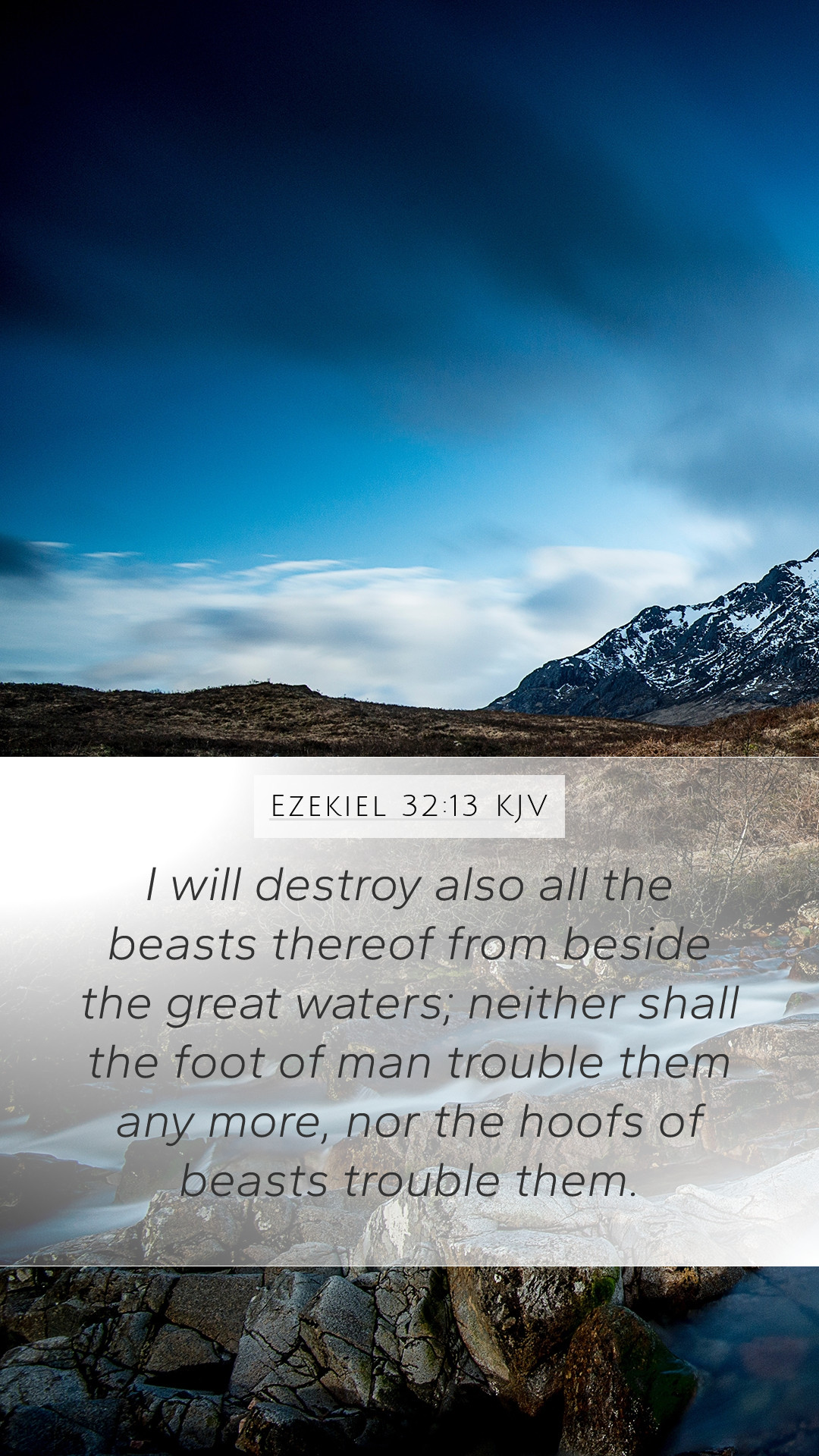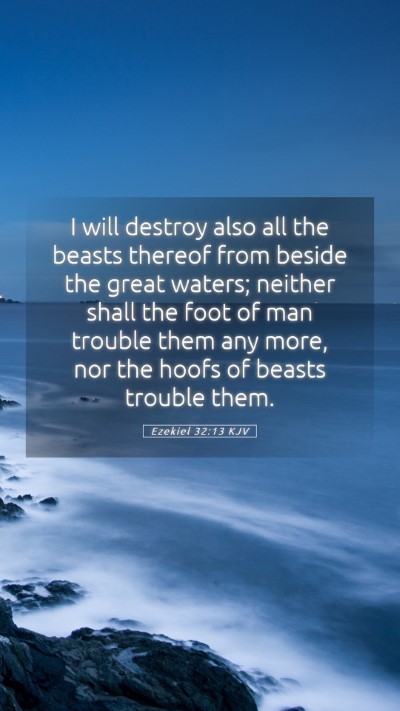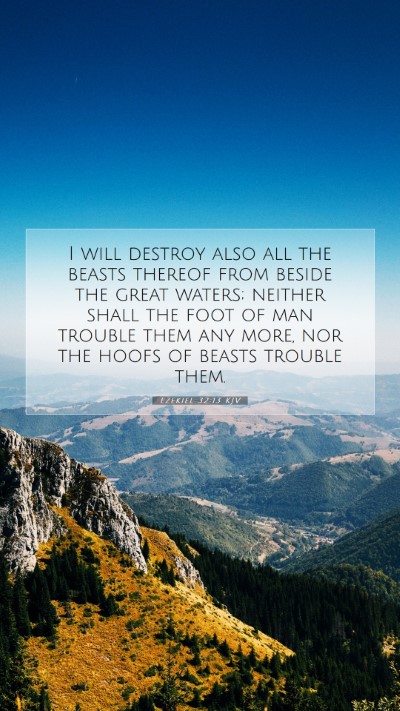Bible Verse Explanation: Ezekiel 32:13
Ezekiel 32:13 states: "I will destroy also all the beasts thereof from beside the great waters; neither shall the foot of man trouble them any more, nor the hoofs of beasts trouble them." This verse carries profound implications within the broader narrative of God's judgment and the eventual restoration of His people. Below is a comprehensive analysis of the verse based on insights from public domain commentaries, focusing on Bible verse meanings, Bible verse interpretations, and understanding Scripture.
Contextual Background
The book of Ezekiel serves as a prophetic narrative during a tumultuous time for Israel. Ezekiel, as a prophet, is often known for delivering messages that convey God's sovereignty and judgment against nations, particularly those that oppress His people. The chapter reflects on Egypt and its beasts, symbolizing both its people and its forces.
Verse Analysis
In Ezekiel 32:13, the imagery of destruction speaks to the ultimate fate of Egypt's might and pride. Here’s a detailed breakdown of various elements of the verse from notable commentators:
-
Matthew Henry:
Henry emphasizes the comprehensive nature of God’s judgment, showing that not only human beings but creation itself will be affected. The “great waters” symbolize the Nile River, around which Egypt thrived. The "beasts" represent the military and economic power of Egypt, which God would decisively dismantle, showing that no strength can withstand divine authority.
-
Albert Barnes:
Barnes explains that the “foot of man” represents humanity’s dominion and control, which will be eliminated. He notes that the cessation of both human and animal activity symbolizes a desolation that would result in the absence of life and vibrancy, portraying a stark reality of God's judgment. This emphasizes that God's decrees are not reliant on human achievement or military prowess.
-
Adam Clarke:
Clarke elaborates on the symbolic meaning behind "the beasts," asserting they depict the political and military resources that brought Egypt its former glory. The resolution of these resources reflects not just physical loss but spiritual defeat. Clarke encourages readers to see God's justice as universal and reigning over all creation.
Thematic Insights
This verse reveals several themes relevant to Bible study insights:
-
Divine Sovereignty:
The destruction of Egypt symbolizes the reality that God is in control of all nations and their fates. This is significant for understanding how to interpret Bible verses within the overarching narrative of God's power.
-
The Importance of Obedience:
Through judgment, God communicates the importance of adherence to His will, which is applicable when applying Bible verses to daily life.
-
Covenant Relationship:
Israel's relationship with God is colored by judgment and restoration, thus understanding difficult Bible passages often requires considering the covenant dynamics in biblical texts.
Related Bible Cross References
To deepen your Bible verse understanding, consider these related scriptures that offer additional context and support the themes found in Ezekiel 32:13:
- Ezekiel 29:10 - A further declaration of judgment against Egypt.
- Ezekiel 30:10 - God's promise of destruction to the idols and false securities of Egypt.
- Ezekiel 31:14 - The fate of the mighty trees representing Egypt’s greatness.
Conclusion
In conclusion, Ezekiel 32:13 serves as a powerful reminder of God's sovereignty over nations and the futility of relying on worldly strength. As we seek to gain a deeper Bible verse commentary, engaging with the themes presented through Ezekiel can offer rich insights into understanding Scripture and the significance of prophecy.


